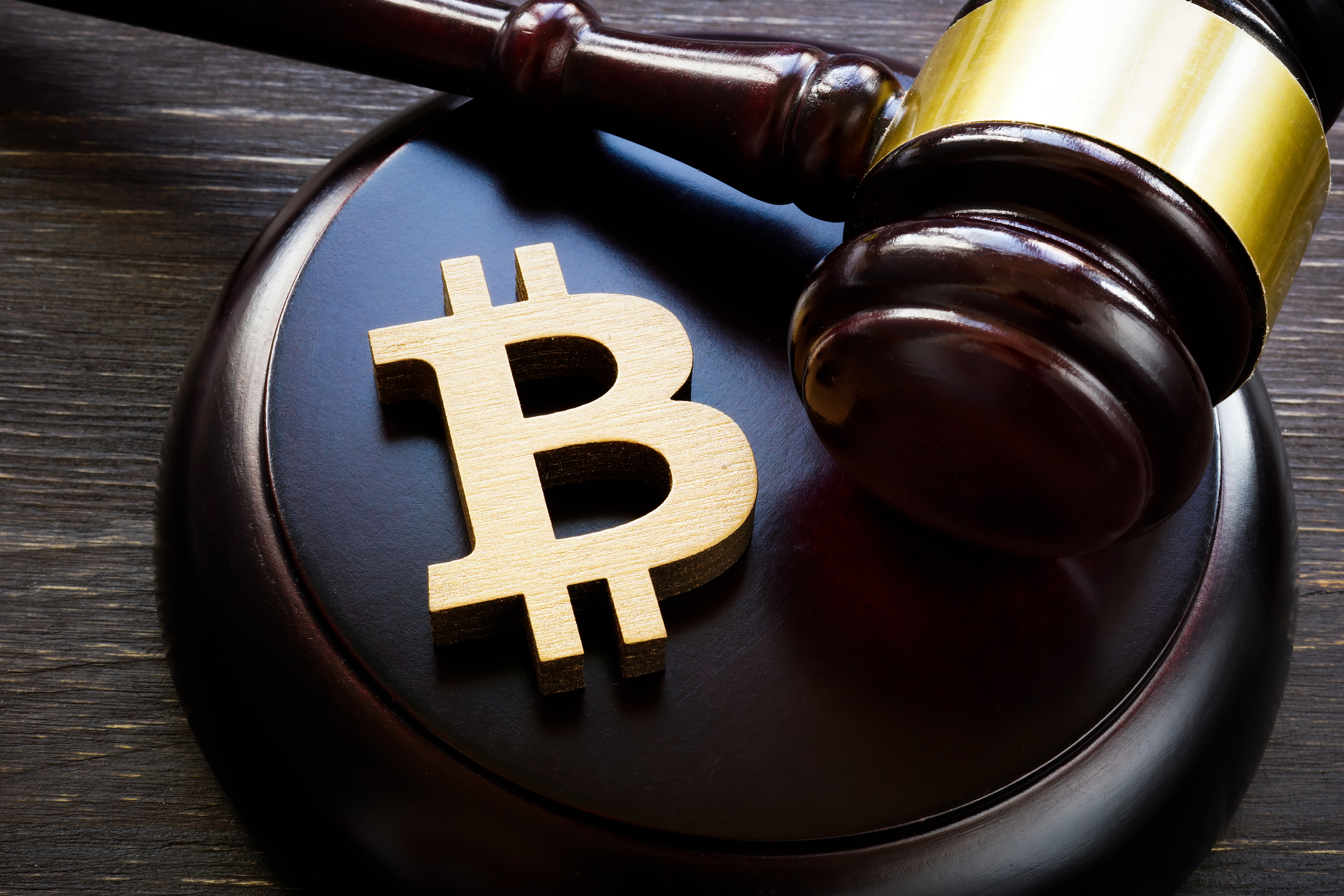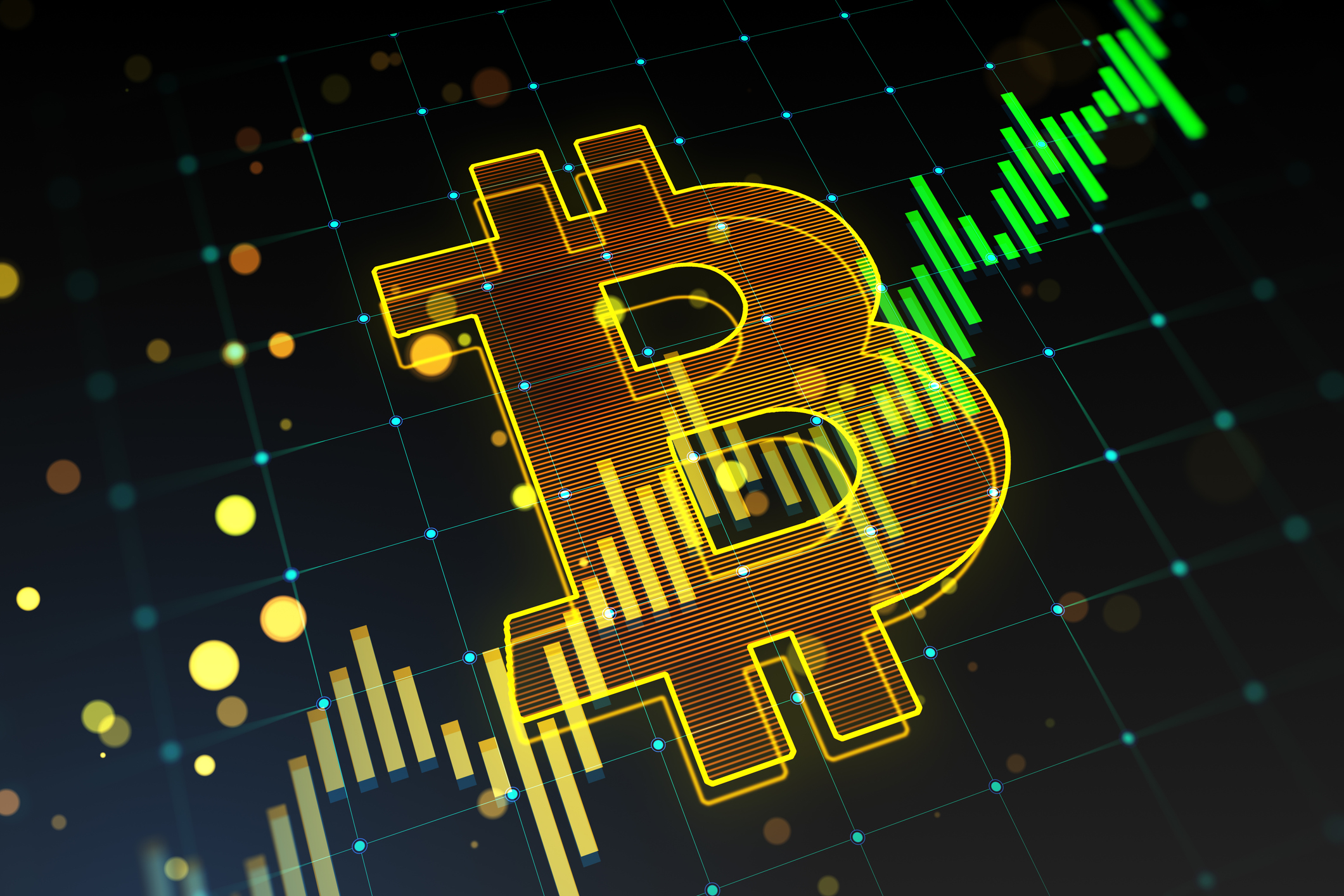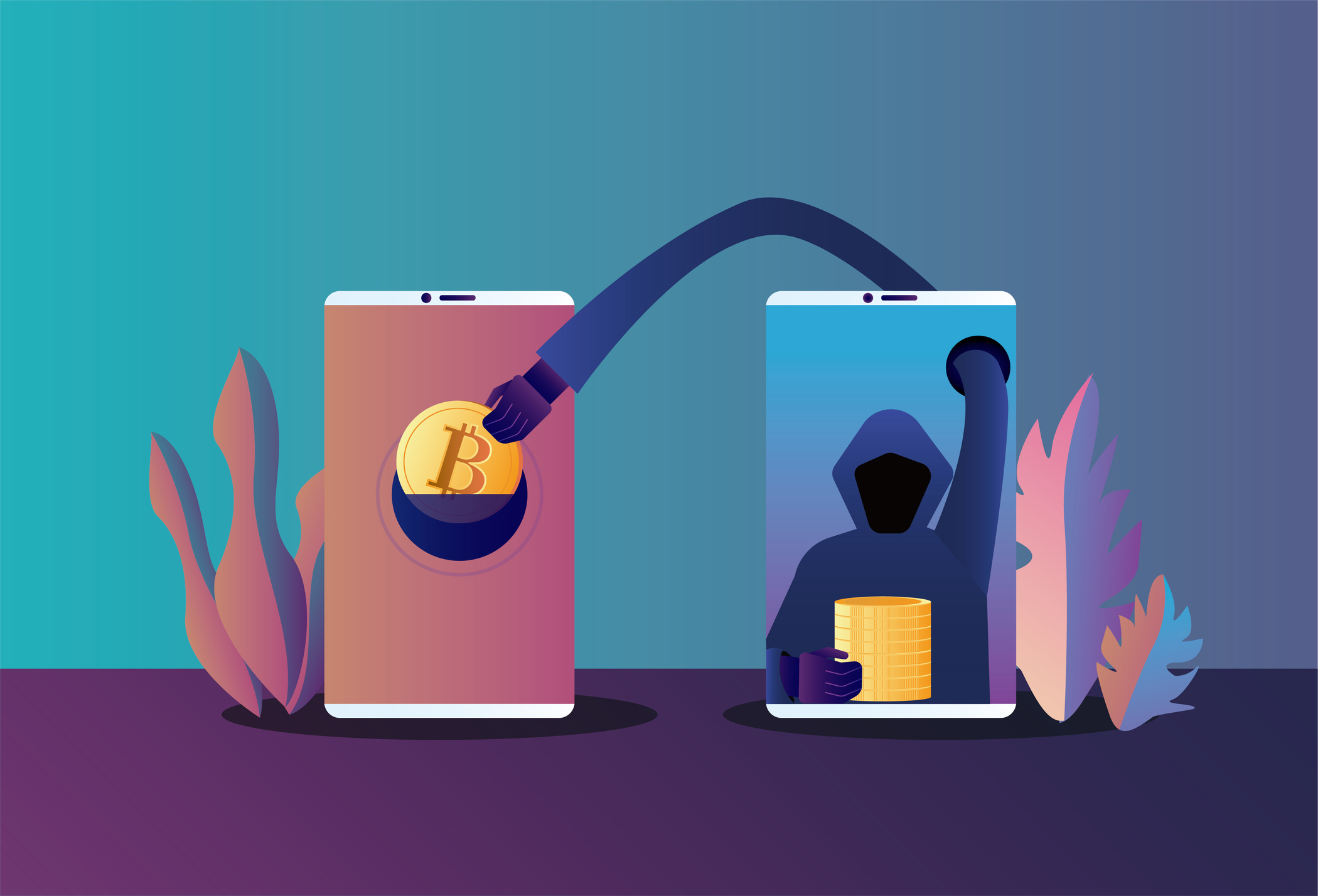5 Threats to Cryptocurrency Dominance
Can cryptocurrency eventually replace traditional fiat? Maybe ... but it will have to navigate several considerable obstacles first.

Profit and prosper with the best of Kiplinger's advice on investing, taxes, retirement, personal finance and much more. Delivered daily. Enter your email in the box and click Sign Me Up.
You are now subscribed
Your newsletter sign-up was successful
Want to add more newsletters?

Delivered daily
Kiplinger Today
Profit and prosper with the best of Kiplinger's advice on investing, taxes, retirement, personal finance and much more delivered daily. Smart money moves start here.

Sent five days a week
Kiplinger A Step Ahead
Get practical help to make better financial decisions in your everyday life, from spending to savings on top deals.

Delivered daily
Kiplinger Closing Bell
Get today's biggest financial and investing headlines delivered to your inbox every day the U.S. stock market is open.

Sent twice a week
Kiplinger Adviser Intel
Financial pros across the country share best practices and fresh tactics to preserve and grow your wealth.

Delivered weekly
Kiplinger Tax Tips
Trim your federal and state tax bills with practical tax-planning and tax-cutting strategies.

Sent twice a week
Kiplinger Retirement Tips
Your twice-a-week guide to planning and enjoying a financially secure and richly rewarding retirement

Sent bimonthly.
Kiplinger Adviser Angle
Insights for advisers, wealth managers and other financial professionals.

Sent twice a week
Kiplinger Investing Weekly
Your twice-a-week roundup of promising stocks, funds, companies and industries you should consider, ones you should avoid, and why.

Sent weekly for six weeks
Kiplinger Invest for Retirement
Your step-by-step six-part series on how to invest for retirement, from devising a successful strategy to exactly which investments to choose.
Many have touted cryptocurrency as the future of money, commerce and investment. That's largely because of its lack of centralized control, ability to store value, frictionless transacting and democratized access to the world financial system.
All of this means people need not rely on central banks or governments for facilitating transactions, managing the supply of money, nor any other function of traditional fiat currency.
Cryptocurrencies bypass this central command and control by using open-source decentralized ledgers called blockchains to record all transactions since each coin's beginning.
But while these records of account do a remarkable job at combating things such as fraud, theft and other problems commonly found in traditional financial systems, digital currencies still face numerous hurdles to legitimacy and widespread adoption.
Read on as we look at some of the best-known risks to cryptocurrencies becoming a replacement to fiat currency.

Open Access
A quick refresher: Cryptocurrency is a digital currency that can be used to buy goods and services. It uses an online ledger called blockchain with strong cryptography to secure online transactions.
The first and most famous cryptocurrency is Bitcoin. However, thousands of cryptocurrencies exist, with the total asset class exceeding a $2 trillion market capitalization earlier this year.
Every transaction recorded across these cryptocurrencies over time has been recorded on a blockchain, verifying who rightly owned coins in a public ledger.
The thing is, it's not just transactions that get recorded to blockchains.
Hidden surprises are sometimes buried in the code. From pictures of Nelson Mandela to prayers for miners, tributes to the fallen, pranks and even WikiLeaks data, the Bitcoin blockchain contains all kinds of non-financial information.
By virtue of how the blockchain works, every subsequent block added to the chain must contain every previous block to maintain a legitimate recording of events. Otherwise, the security of the blockchain fails and it can no longer be trusted.
While the previous list contains mostly harmless items, cryptocurrency's openness in the mining process exposes it to much more nefarious types of content getting added to the blockchain for each coin.
This could be something that threatens governments, corporations, even specific people. And the only way to remove something from the blockchain is to force a "fork" of the blockchain, meaning the cryptocurrency then fragments into multiple parallel cryptocurrencies and blockchains.
If objectively harmful content gets added to the new blockchains, forcing fork after fork, this could spell trouble for the chance of stability for these coins, as well as their broader adoption.

Environmental Footprint
Crypto miners – groups who employ sophisticated, energy intensive machines to solve complex algorithms in exchange for cryptocurrency – add new transactions to the blockchain.
This system relies on a "Proof of Work" methodology, whereby crypto miners compete with ever-increasing computing power to solve the algorithm before others. As a reward for solving the puzzle, the winning miner receives a nominal amount of the cryptocurrency. This motivates miners to continue mining, as well as invest in their operations.
However, concerns have arisen about the environmental impact of cryptocurrencies who use this transaction verification process.
Many see the massive electricity consumption of these cryptomining operations as a problem. The energy used by these crypto operations has a large portion come from "dirty" coal-fired power plants which produce significant CO2 emissions.
Indeed, "dirty cryptomining" might already be responsible for more pollution than America's largest airline, according to Financial Times.
Not all cryptocurrency coins use this transaction verification system. Some rely on a "Proof of Stake" system whereby servers use consensus polling to identify the correct transactional history of a currency. This process uses far less energy than the Proof of Work system employed by a coin like Bitcoin.
Before cryptocurrency lands in the mainstream, it might need to clean up its act.

Key Person Risk
Cryptocurrency doesn't have centralized control. It goes against the currency's purpose and is largely a reason for its success.
However, in recent years, Elon Musk has become wildly popular in the crypto community, and it sees him as its biggest booster.
Musk's company, Tesla (TSLA), became the first S&P 500 constituent to invest in Bitcoin as a means to broaden the company's appeal. Tesla also said in March that buyers could use the digital currency to purchase its vehicles. This move, and its step toward legitimizing cryptocurrency, sparked a rally in most cryptocurrencies.
With media comments and tweets, Musk has influenced billions of dollars to flow into these virtual coins ... but he has triggered outflows, too. For instance, in mid-May, Tesla said it would no longer be accepting Bitcoin payments because of its environmental impact.
More recently, Musk tweaked his company's policies again, tweeting that "When there's confirmation of reasonable (~50%) clean energy usage by miners with positive future trend, Tesla will resume allowing Bitcoin transactions."
This back-and-forth exerts real pressure on cryptocurrency prices, in both directions. And Musk's emergence as a backer of Bitcoin and the broader crypto space has complicated digital currencies' decentralized control narrative. His words hold significant sway on the asset class and how people see it.
Some people who want crypto to replace fiat currencies likely don't enjoy seeing this mercurial celebrity entrepreneur influence the space so thoroughly. Moves like pulling the plug on accepting Bitcoin, or showing continued enthusiasm for Dogecoin, a coin created as a joke, are understandably grinding.
Cryptocurrencies now face a "key person risk" from Musk – something that's out of step with cryptocurrency's founding ethos.

Government Regulation
Cryptocurrencies maintain their independence through market-driven processes to build their blockchains like mining and consensus polling. This prevents fraud, counterfeiting and centralized control.
It also makes them largely immune to governmental regulation because of miners' abilities to relocate to anywhere in the world. So long as miners can secure the necessary power and hardware necessary, they can be location-agnostic.
Governments have largely been unsuccessful in banning cryptocurrencies in their own borders. In fact, the current system of the globalized internet makes it nearly impossible. According to Pat Larsen, CEO of crypto tax software company ZenLedger, every country would have to create "a walled internet like China and then [try] to ban cryptocurrency inside their firewall."
While governments might not have the power to ban cryptocurrencies outright, they can certainly ban their use cases. China recently signaled a warning about using virtual currencies as a form of payment.
Despite actions like this, regulators cannot ban all cryptocurrency because of its virtual, decentralized nature. As a sign of their resilience against governmental control, Larsen states, "[attempts] to ban cryptocurrency often [prove the coins'] worth as citizens seek to acquire ways to flee a failing currency or state. Oppressive regimes spawn innovation and black markets time and again."
That doesn't mean governments won't keep trying to find ways to limit the prevalence of cryptocurrencies. Indeed, their desire not to cede control of the financial system should only strengthen as this asset class grows in value.

Stable, State-Controlled Virtual Currencies
If you can't beat them, join them.
Governments have made numerous overtures at their displeasure with cryptocurrencies circumventing their hegemony. To this point, many of their concerted actions have failed to quell the crypto-mania we've seen in recent years.
In response, governments and their central banks can opt to launch their own state-controlled virtual currencies. These would have centralized control and have the explicit backing and support by governments.
This wouldn't necessarily extinguish the current spate of virtual currencies, but it could potentially cripple their market value. Though, even with state-controlled stablecoins, one main area that existing virtual currencies could still add value is continued innovation.
If cryptocurrencies seek to replace fiat currency as a global resource and become a widely accepted form of payment, store of value and unit of account, it'll need to address some of the security concerns, clean up its environmental act, as well as quell government displeasure with their existence.
No easy feats by any measure, but not impossible, either.
Profit and prosper with the best of Kiplinger's advice on investing, taxes, retirement, personal finance and much more. Delivered daily. Enter your email in the box and click Sign Me Up.
Riley Adams is a licensed CPA who works at Google as a Senior Financial Analyst overseeing advertising incentive programs for the company's largest advertising partners and agencies. Previously, he worked as a utility regulatory strategy analyst at Entergy Corporation for six years in New Orleans.
-
 When Estate Plans Don't Include Tax Plans, All Bets Are Off
When Estate Plans Don't Include Tax Plans, All Bets Are OffEstate plans aren't as effective as they can be if tax plans are considered separately. Here's what you stand to gain when the two strategies are aligned.
-
 Relying on Real Estate in Retirement? Avoid These 3 Mistakes
Relying on Real Estate in Retirement? Avoid These 3 MistakesThe keys to successful real estate planning for retirees: Stop thinking of property income as a reliable paycheck, start planning for tax consequences and structure your assets early to maintain flexibility.
-
 These Small Money Habits Really Can Plant Roots
These Small Money Habits Really Can Plant RootsFebruary gets a bad rap for being the month when resolutions fade — in fact, it's the perfect time to reset and focus on small changes that actually pay off.
-
 Is Crypto Investing Coming to a Credit Union Near You?
Is Crypto Investing Coming to a Credit Union Near You?Credit unions are getting in on crypto investing through partnerships with third-party platforms, but the risks to investors still apply.
-
 The GENIUS, CLARITY, and Anti-CBDC Acts: What Bitcoin Investors Need to Know
The GENIUS, CLARITY, and Anti-CBDC Acts: What Bitcoin Investors Need to KnowMovement on the crypto front at the federal level has the potential to usher in substantial change. Here's what it means for your portfolio.
-
 Cryptocurrency May be Coming to Your 401(k) with Rules Change
Cryptocurrency May be Coming to Your 401(k) with Rules ChangeCrypto may be coming to a 401(k) near you. Financial experts weigh in on whether retirement savers should take the plunge.
-
 Is It Too Late to Invest in Bitcoin?
Is It Too Late to Invest in Bitcoin?Bitcoin has been volatile in recent months, but several analysts believe the cryptocurrency will resume its winning ways. Should investors get in now?
-
 The 24 Cheapest Places To Retire in the US
The 24 Cheapest Places To Retire in the USWhen you're trying to balance a fixed income with an enjoyable retirement, the cost of living is a crucial factor to consider. Is your city the best?
-
 Silvergate Stock Sinks on Liquidation News
Silvergate Stock Sinks on Liquidation NewsSilvergate Capital stock is spiraling after the financial firm said it's shutting down operations at its crypto-friendly subsidiary.
-
 5 Stocks to Sell or Avoid Now
5 Stocks to Sell or Avoid Nowstocks to sell In a difficult market like this, weak positions can get even weaker. Wall Street analysts believe these five stocks should be near the front of your sell list.
-
 Crypto Hackers Stole a Record $3.8 Billion in 2022. Don't Be Next.
Crypto Hackers Stole a Record $3.8 Billion in 2022. Don't Be Next.Cybercriminals stole a historic amount of crypto last year — a growing trend that puts every cryptocurrency investor at risk. The biggest hacks and how to protect yourself.
